The Witcher Season 2 Changes Everything From The Book
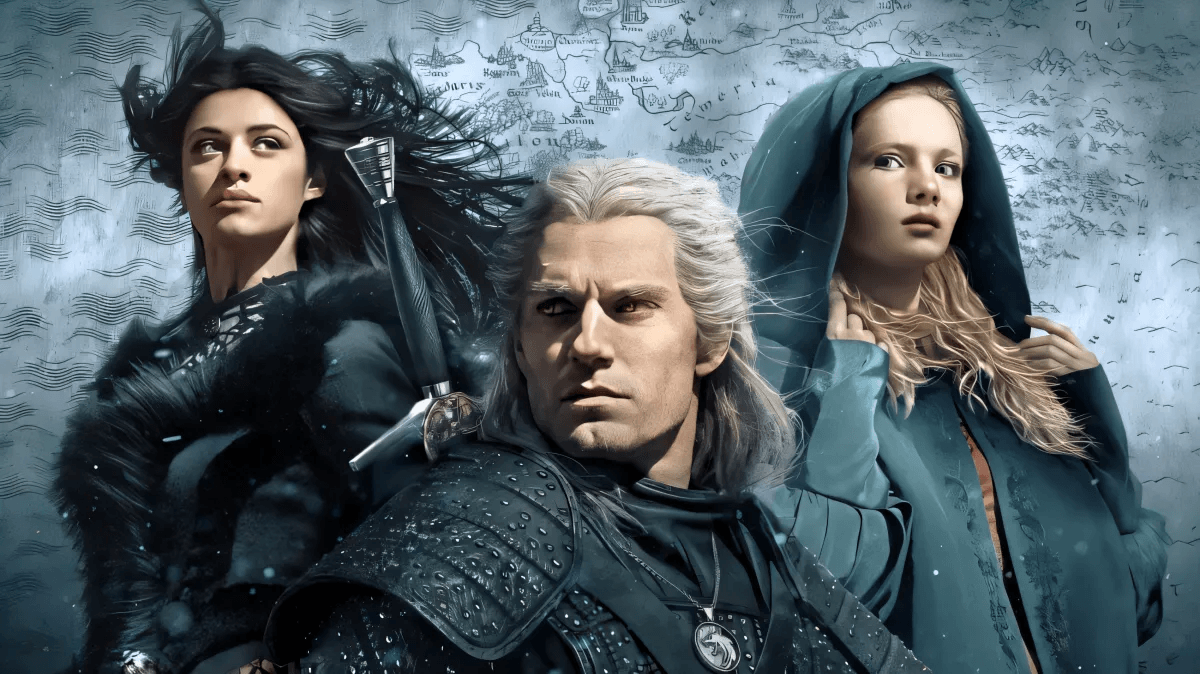
The highly anticipated Witcher Netflix series released its second season over the holidays and was met with approval by most viewers of the first season, as well as those who've played the immensely popular Witcher 3: Wild Hunt game. However, to those who've read the books, the series left a definite bitterness in their mouth.
The Witcher season 2 should have chronologically followed the story of Ciri from the point where she is united with Geralt. The expectation was an adaptation of Blood of Elves: the first of five books with Cirilla as the joint protagonist.
There is plenty to work with from a writer's point of view, the whole book plays out like a script. While I understand the term 'adaptation', that word apparently means 'a free pass to completely bastardize someone elses' work' to showrunner Lauren Schmidt Hissrich.
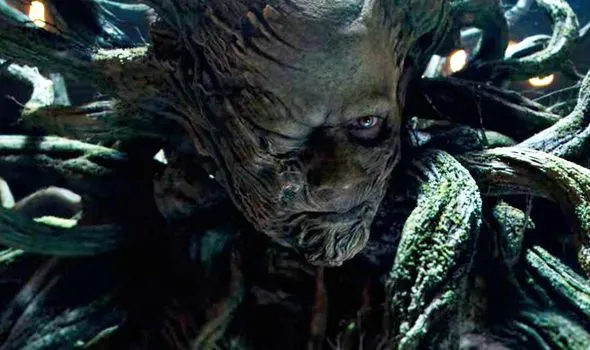
What follows is an absolute travesty. A complete disregard for the narrative. Taking appalling liberties with the canon. Characters, Races, and entire political motivations were shifted and misaligned, with time made for superfluous subplots to be included.
Blood of Elves isn't necessarily a long book and the text is given right there. While the linear timeline certainly helps narratively, for a layman new to the series I imagine they'd be completely lost in the terminology and led to wrongly believe that the events of this series are what transpires in the books.
The character of Nivellen is portrayed this season by Kristofer Hivju, a character who is in one of the short stories of the first book. If the first season hadn't messed around showing timelines in Tarantino fashion, the episodes could all have been these short stories that serve as an introduction to Geralt. The showrunners possibly realized this error, and back-pedaled to include his story, as it is one of the better ones; albeit with the alteration of including Ciri.
It's visually entertaining certainly, and they've gone to great lengths to get the imagery right, more in line with the games for fan recognition. Imagery is important to get viewers watching, but the plot is weakened by ridiculous changes.
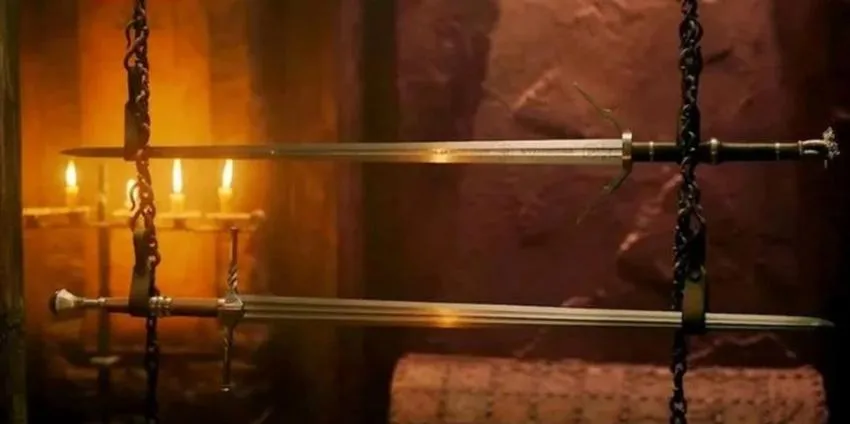
More places are visited in this season, and the general tumultuous world of the Continent is fairly depicted, with its racial prejudices and distrust between spying kingdoms.
The show isn't without its great moments of course. One of the best moments of the season personally is when Geralt stops Yennefer in her tracks with his sword to her throat, upon realizing that she duped Ciri. He angrily growls "mine" in her face, regarding his Child Surprise. It shows in a nutshell how his paternal love of Ciri would always outweigh his love and lust for Yennefer when confronted.
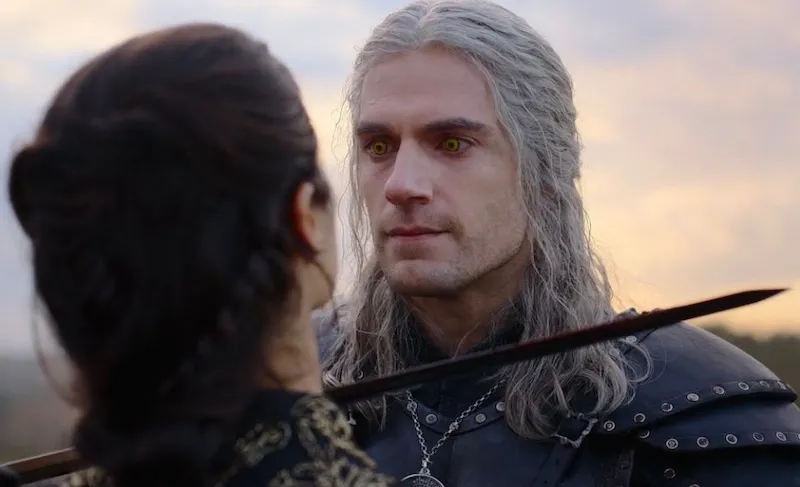
Nonetheless, it's a depth that needn't have even been plumbed, as 'Blood of Elves' shows the family dynamic of the three, a concept and heart lost in this mess of a season, that places more importance on PC-box ticking than telling a coherent story.
Eight episodes are plenty to interpret the short book to the small screen, but certain characters are introduced, and their scenes are then spaced too far apart for viewers to cobble together the overarching plot. Far too much attention has been placed on The Brotherhood, Tissaia, and Aretuza, and not the warring realms or their fickle allegiances.
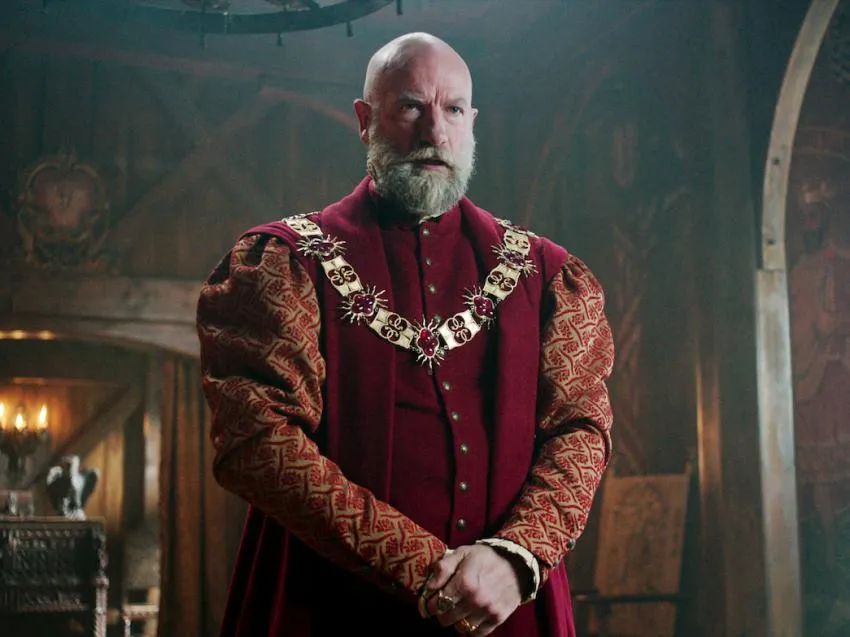
The dialogue in Sapkowskis' books is masterful, with scintillating rapier wit and grounded realism. Philosophies are explored which provide characters depth, but Netflix seems to be relying on reputation alone and has lost those character depths, by providing new, inferior dialogue for characters' new motivations.
I don't know who these scriptwriters think they are. To take someone else's work and try to make it better, and completely trash a master-crafted plot. The sheer audacity of trying to expand on something so good, safe in the knowledge of its viewing figures and success because of the attached name, seemingly is a justification to bastardize a franchise.
The true magic of this franchise is in its battle-of-wits relationships, the fragile back and forth set against a backdrop of war and racial prejudice. The maternal strength of Yennefer, the fierce, masked loyalty of Geralt. The Netflix series showrunners haven't understood this and shifted entire characters into something unrecognizable.
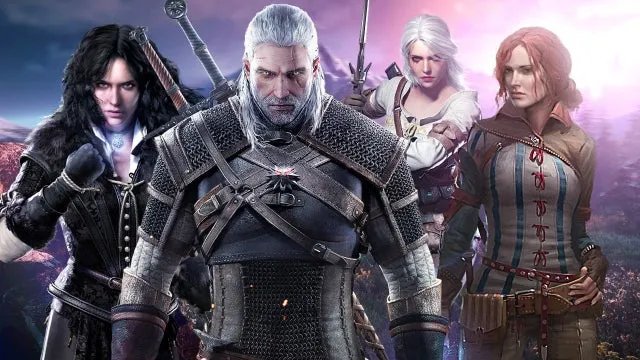
Sapkowski has apparently praised this series, but I find that very hard to believe given his past intolerance of the liberties the games took, and they were merely continuations of his own canon. The dialogue remains very close to the source material and is masterfully written.
The Witcher 3: Wild Hunt is widely regarded as one of the greatest RPG games of all time, which catapulted interest into the public eye, and contributed to this Netflix series being made in the first place. Entire policies, war beliefs, and character deaths have occurred in this series but he's praised this? It seems surreal.
The series has tried very hard to equalize the story of Yennefer with that of Geralt. The problem is that very little is given of Yennefer, so entire plotlines had to be written out of nothing. The writing is obviously inferior to Sapkowskis. Same with Fringilla and Cahir, canonically misguided but demonized into true villains for the show.
Yennefer is such an important character in her complexities. Oftentimes unlikeable, other times endearing in her dedication. She's cold, calculating, and ambitious. Deadly to her enemies, dismissive to every acquaintance, yet fiercely loyal to those she loves. In particular, her maternal feelings toward Ciri are incredibly strong, strong enough to endure terrible torture in later books.
That relationship buds in The blood of Elves book, and subsequently should have been seen on screen in this series. The new story of her betraying Ciri for power does her character a great disservice, as her maternity is Yennefer's greatest redeeming factor in one of modern literature's greatest powerful female roles. It seems that the showrunners don't understand this and don't care, portraying her to newcomer viewers as a power-grabbing ruthless bitch.
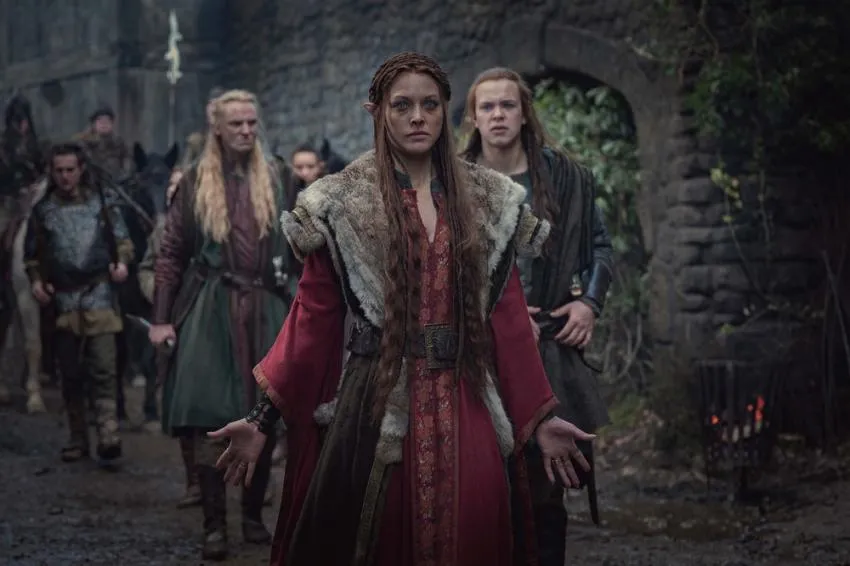
The elven storyline is ridiculous to the point of insulting. "Based on" the books pretty much means "take a dump on".
Netflix had a wonderful chance to interpret Sapkowski's work verbatim. Maybe employ or omit certain cinematic tricks of the trade to make things more visually compatible, similar to Peter Jackson's interpretation of The Lord of the Rings. Jackson was criticized by The Tolkien Company for his vision, but in terms of liberties taken, Jackson's are fairly minimal by comparison to Lauren Schmidt Hissrichs.
The one great saving grace is Henry Cavill's performance as Geralt. The man is obviously very enthusiastic about the franchise: his energy, determination, and vigor are equal only to his dour expression and gravelly voice. He clearly understands the character fully and endorses the game's version of him. Unfortunately, he seems to be an actor dedicated to a role in a franchise that the makers don't understand.
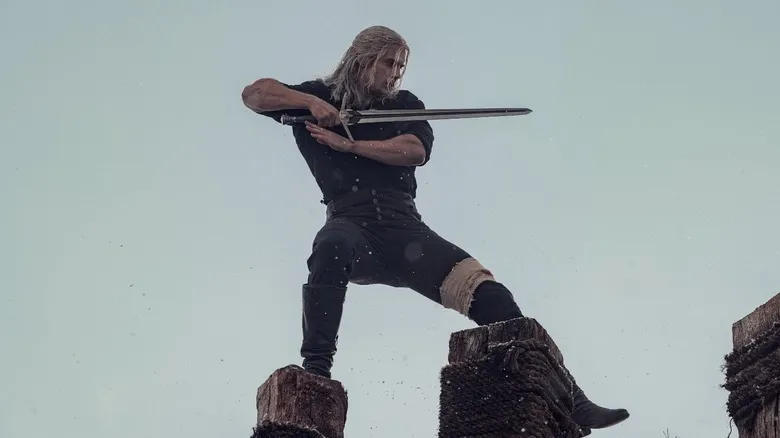
The game makers CD Projekt Red created their own Witcher storylines for their games, but clearly had a deep respect for the stories and lore, merely expanding upon them in a later timeline.
Netflix has merely seen a potential spike in viewers' interest and thrown some money at it. At the end of the day, for Netflix at least it comes down to public reception: if it gets views, it'll get more seasons. They don't care that a treasured modern Polish fantasy series is being ruined.
Netflix has even taken to doing spin-offs like the animated Vesemir origin story Nightmare of the Wolf and is in the middle of making a series about how the Witchers came to be. The problem is that as these aren't even works of author Sapkowski, it gives free rein and even more 'artistic license' to loosely interpret the heart of what this franchise is.
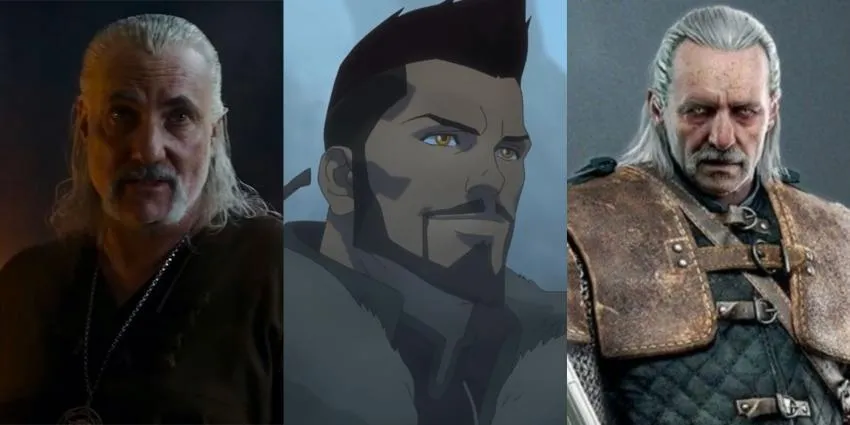
For example, across two seasons it still hasn't been explained that Geralt's hair turned white as a pigment loss side effect of the Trial of the Grasses, the grueling process that turns boys into Witchers, with a low success rate. His fellow Witchers should also have yellow eyes as a result of this Trial, but they're visually depicted as a bunch of normal-looking humans that can fight well.
The Vesemir story didn't even portray him properly, as the series shows him to be a callous man who would risk Ciri's life trying to turn her into a Witcher, when in fact he had a deep admiration for her and wouldn't dream of harming her in this way. And besides, the Trial of the Grasses only works on boys.
It's such a shame because now after two seasons, with a great visual cast already established, and great costumes and work gone into it, it's hard to bring the plot itself back to what it's supposed to be. What can only follow now will be another tangent of the classic plot the readers know and love.
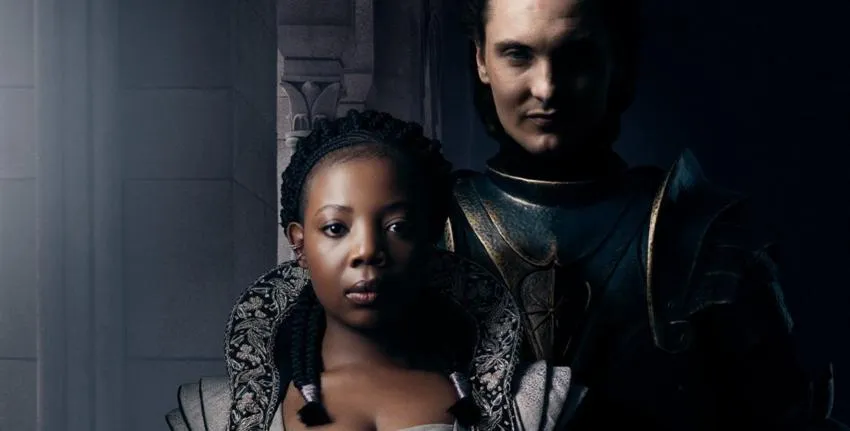
Fringilla and Cahir can't transition out of their current context of evil Nilfgaardians to the roles they play in the books. The elves are demonized by their ridiculous plot to the point where Francesca can't be part of the Lodge of Sorceresses. Ciri hasn't received any magic training from Yennefer, who is now ostracized from the group and has no powers anyway.
While it hasn't necessarily taken the Game of Thrones route of dumbing scenes down and talking down to its viewers, The Witcher on the whole doesn't necessarily insult the viewers' intelligence.
Rather they've changed every conceivable aspect of the book. It isn't even clear why: the new scenes don't add anything to the overall story arc, and aren't as necessarily visually appealing compared to the scenes that are in the book.
Blood of Elves is a short story with masterful dialogue, ready to be plucked from page to screen, the script has literally written itself. But somehow it's been lost in translation and ruined by someone who thought they could do a better job. The appeal of the show was from the avid readers, so the original fan base has been alienated.
It makes one wonder that with so many variations from the books, how will future seasons proceed? Will Geralt form his merry band of rogues? Will the ending even be the same?
Opinions and Perspectives
They've made it accessible to new fans but at the cost of alienating book readers.
I wish they'd focused more on developing the core relationships instead of adding new subplots.
The fight choreography is impressive but doesn't make up for the plot changes.
I actually enjoyed some of the new character interactions we wouldn't have seen in the books.
The show has its flaws but Henry Cavill's dedication to the role is admirable.
Eight episodes wasn't enough to do justice to all these storylines they tried to cram in.
The way they handled the mages and politics this season was confusing and overcomplicated.
As a standalone show it's entertaining, but as an adaptation it's disappointing.
It feels like they're trying to create artificial drama instead of using the natural conflicts from the books.
The costume design and set pieces are amazing. Just wish the writing matched the production value.
I understand creative freedom but some of these changes feel disrespectful to the source material.
They should have just adapted the short stories first before jumping into Blood of Elves.
The relationship between Geralt and Ciri is at least somewhat faithful to the books.
Maybe we need to stop comparing it to the books and just enjoy it for what it is.
I think people are being too harsh. It's still one of the better fantasy shows out there.
This season made me appreciate the games even more. At least they respected the source material.
I'm worried about how they'll handle the rest of the series given how far they've strayed already.
The brotherhood storyline was completely unnecessary and took time away from more important plot points.
They've written themselves into a corner with some of these changes. How will they handle future storylines?
I actually prefer some of the show's character arcs to the books. There, I said it.
The political intrigue feels forced compared to how naturally it flowed in the books.
As someone who played the games first, I think the show strikes a good balance between game and book elements.
I just wish they'd trusted the source material more. It was already perfect as it was.
The show feels like it's trying to appeal to everyone and ends up satisfying no one completely.
I wonder what Sapkowski really thinks about all these changes. His praise seems surprising given his past reactions.
They really missed an opportunity to show the beautiful family dynamic between Geralt, Yen, and Ciri from the books.
Am I the only one who thinks the changes make the story more unpredictable and exciting?
The dialogue in the books was so much better. These new writers aren't even close to Sapkowski's level.
Honestly, I love both the books and the show for different reasons. They each bring something unique to the table.
The pacing feels off this season. They're cramming in too many plot lines at once.
I feel like they're trying too hard to make it the next Game of Thrones instead of letting The Witcher be its own thing.
That scene where Geralt confronts Yennefer about Ciri was powerful, I'll give them that.
I actually found some of the new subplots interesting. They helped flesh out the world more than the books did.
The whole Yennefer losing her powers subplot felt forced and added nothing to the story.
You know what really bugs me? They never properly explained why Geralt's hair is white. Such a simple but important detail from the books.
I'm torn. The production value is amazing, but as a book fan, these changes feel unnecessary and sometimes disrespectful to the source material.
The visual effects and fight scenes are incredible, but I wish they'd put as much effort into staying true to the book's plot.
While I understand being protective of the source material, I think the show brings something fresh to the table. Not everything needs to be a 1:1 adaptation.
Has anyone else noticed how they completely butchered the elven storyline? It's almost unrecognizable from the source material.
I disagree about the changes being bad. Sometimes adaptations need to take creative liberties to work in a different medium.
Henry Cavill is absolutely carrying this show. His portrayal of Geralt is spot on, even when the writing fails him.
The way they handled Yennefer's character development this season really bothers me. Her wanting to sacrifice Ciri for power goes against everything her character stands for in the books.
Actually, I enjoyed the changes. As someone new to the series, it made the story more accessible and engaging for me.
I can't believe how much they changed from Blood of Elves. The book had such a perfect story arc that could have translated beautifully to screen.
